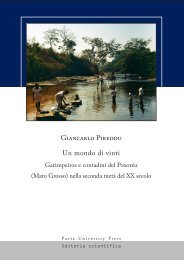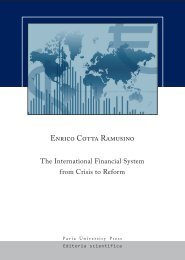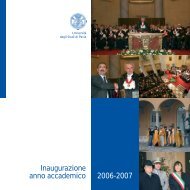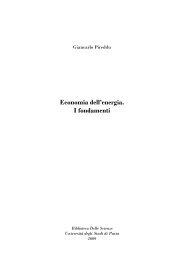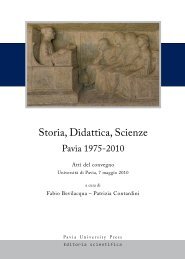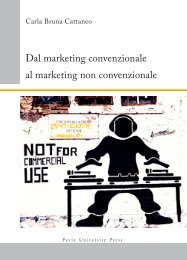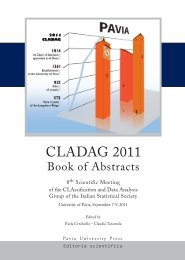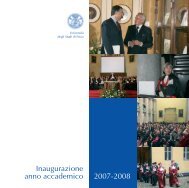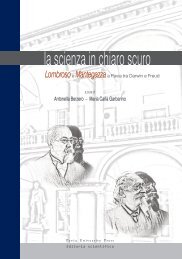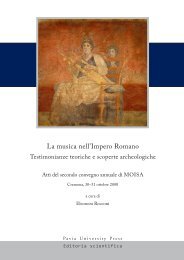La didattica dell'italiano a studenti cinesi e il progetto Marco Polo ...
La didattica dell'italiano a studenti cinesi e il progetto Marco Polo ...
La didattica dell'italiano a studenti cinesi e il progetto Marco Polo ...
Create successful ePaper yourself
Turn your PDF publications into a flip-book with our unique Google optimized e-Paper software.
Teaching Italian to Chinese students: The <strong>Marco</strong> <strong>Polo</strong> Project<br />
English Abstract<br />
The <strong>Marco</strong> <strong>Polo</strong> project is an agreement (established in 2006) between the Italian<br />
government and the Chinese government. The agreement allows Chinese undergraduate<br />
students to come to Italy to study Italian for six months before enrolling in Italian<br />
Universities. After four years since the agreement has been signed, some of the Italian<br />
Universities involved in the project met in Rome to share problems, idea and to set<br />
affordable plans for the future.<br />
The authors face issues such as teaching grammar, phonetics, prosody, lexicon and<br />
Italian culture. All the contributes published in this volume stem from a common<br />
perspective: teaching Italian to Chinese students is as challenging as rewarding from<br />
both scientific and professional points of view because explicit instruction in language<br />
courses is designed not only to allow students to interact with native speakers in<br />
everyday life, but also to attend courses taught in Italian and to master the formal<br />
registers of written and spoken language. The main complication arises from the<br />
disparity between the duration of the project (6 months) and its goals. <strong>La</strong>nguage<br />
acquisition is a long-lasting process and none can seriously maintain that six months are<br />
enough for the task. Wh<strong>il</strong>e easy solutions st<strong>il</strong>l seem not to be at hand, more efforts are<br />
necessary to ensure that Chinese students can continue to improve their developing<br />
sk<strong>il</strong>ls throughout and also after the <strong>Marco</strong> <strong>Polo</strong> project is over.<br />
Elisabetta Bonvino is research fellow in Linguistics and <strong>La</strong>nguage Teaching at the<br />
Department of Linguistics in the University of Roma Tre. Her main research interests<br />
are: the intercomprehension among Romance languages, the teaching of the Italian<br />
language as L2, the analysis of spoken language, and the evaluation of linguistics<br />
competences.<br />
Stefano Rastelli is research fellow in Linguistics and <strong>La</strong>nguage Teaching at the<br />
University of Pavia, where he also serves as the Italian <strong>La</strong>nguage Program coordinator.



